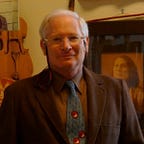An Authority in Applied and Theoretical Branches of Anthropology
Jerome Levi is Professor of Anthropology, Emeritus, at Carleton College located in Northfield, MN. Jerome Levi became interested in anthropology at a young age, having grown up in the company of Native Americans in California and Mexico. When he was twelve he accompanied his father and photojournalist Trudy Blom on an expedition into the jungles of eastern Chiapas, Mexico, to visit the Lacandon-Maya in 1969 and by the time he was in high school he was recording the words and traditions of Cupeño and Yuman-speaking elders in the borderlands of San Diego County, California, and northern Baja California, Mexico. He began his university studies at UCLA, later receiving degrees in anthropology from Harvard (B.A, Ph.D.) and Cambridge (M.Phil.) Universities. Jay Levi graduated from Harvard summa cum laude, was a Marshall Scholar while at Cambridge, England, and has been awarded honors and fellowships from the National Endowment for the Humanities, National Science Foundation, Fulbright-Hays, Tinker Foundation, Institute for International Education — ITT, Higher Education Consortium on Urban Affairs, The University of Chicago — Globalization Project, Truman Institute for Peace — Hebrew University, Center for the Study of World Religions — Harvard University, and Carleton College, among others.
Recognized as an authority in both applied and theoretical branches of anthropology, Jay Levi’s over four decades in the field have led to him teaching and publishing widely in cross-cultural studies of ethnicity, myth, ritual, symbolism, economics, humor, indigenous rights, Judaism, and genocide. As an example of his applied work, he served as an expert witness during the Hopi-Navajo Land Dispute and wrote Congressional testimony for the Navajo Nation presented before the US Senate Select Committee on Indian Affairs. He has advanced anthropological theory and ethnography through his multiple publications on Native American peoples, religion, ethnic identity, structuralism, Kabbalah, and contributions to the International Encyclopedia of the Social Sciences, the Oxford Encyclopedia of Mesoamerican Cultures, and the Encyclopedia of Shamanism. He is especially noted for his expertise on the Tarahumara (Rarámuri) of northwest Mexico among whom he conducted ethnographic fieldwork for his doctoral dissertation. For ten years — from 2006 through 2016 — he was the Director of Carleton’s off campus field study program on both ancient and contemporary Mayan peoples in Chiapas and Guatemala.
Jerome Levi has focused his ethnographic studies on indigenous foragers, farmers, and pastoralists in the Americas, Africa, and the Middle East. In Mexico, he has worked with the Tarahumara, Tzotzil-Maya, Paipai, and Kiliwa; in the Southwest United States and California with the Navajo, Cupeño, and Kumeyaay; in South Africa with the #Khomani San/Bushmen; in East Africa with the Hadza, Datoga, and Maasai; and in Israel and the West Bank with Jewish and Palestinian use of international indigenous rights discourse. His two years of doctoral fieldwork was conducted amidst mile-deep gorges located in a remote region of southwest Chihuahua, Mexico, requiring him to hike for days to reach the gentiles, a non-Christian subgroup of the Rarámuri (Tarahumara) that were the focus of his study. It also required him to navigate around both narcotraficantes and the army in this tense conflict zone.
In addition to his ethnographic studies, Jay Levi is sought for his expertise on the human rights of indigenous peoples as shown by his work in this area for the United States Congress, the United Nations, and the World Bank. His book, At the Risk of Being Heard: Identity, Indigenous Rights, and Postcolonial States (2003) co-edited with Bartholomew Dean, is still considered a classic in the field.
Jay contributed to Carleton in many capacities during his over 25 years at the College. Besides consistent curricular development, he has served as Chair of the Department of Sociology and Anthropology, Director of Latin American Studies, Co-organizer of the Foro Latino-Americano, Advisor for the Latin American Student Organization, Rhodes and Marshall Scholarship Advisor, Faculty Advisor for the Latin American Student Organization, and member of the Admissions and Financial Aid Committee, Student Grants Committee, Faculty Grants Committee, and Honorary Degrees Committee. He has been active in the Jewish life of the College and twice brought different relatives who were Holocaust Survivors to speak at campus-wide memorial events on Yom Ha-Shoah (Holocaust Remembrance Day). These many and varied activities reflect only a small part of Jay Levi’s contributions to Carleton College.
Jerome Levi enjoys a variety of activities in his spare time. Fueled by his anthropological interests, he has a passion for cooking, recognizing how food in every culture brings people together. He loves to travel, learn new languages, read, meditate, and make people laugh. Having grown up in a place that was close to the sea, the deserts, and the mountains, he enjoys swimming, fishing, hiking, and getting out into nature and exploring off the beaten-track whenever possible.
